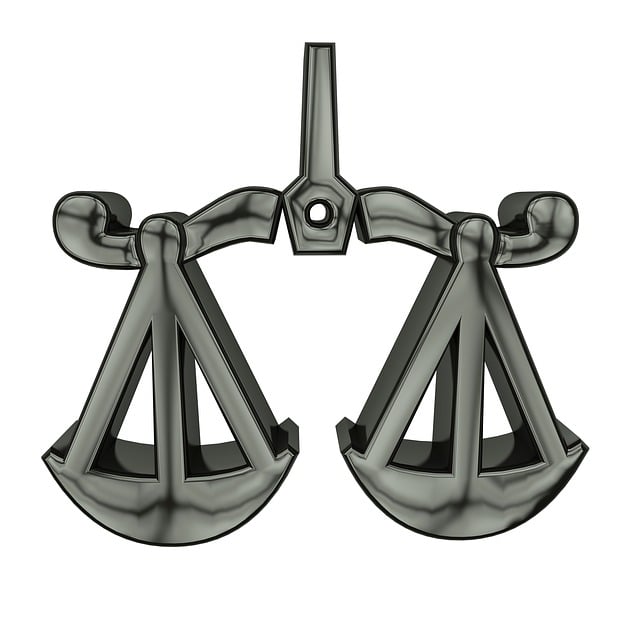Antitrust laws protect fair competition and foster healthy business environments by prohibiting practices like price fixing and monopolization. Understanding these laws is crucial for small businesses, especially startups aiming to expand nationwide. Criminal Defense Attorneys specializing in white-collar crime navigate complex antitrust scenarios, defending small businesses against accusations while ensuring compliance. They employ strategic defenses, fact-finding, and interpretation of laws to secure favorable verdicts, protecting reputations and sustainability. This proactive approach helps businesses avoid legal pitfalls, fostering innovation and economic growth.
“Uncover the intricate dance between business survival and legal compliance in our exploration of antitrust laws and their impact on small enterprises. This article delves into the crucial role criminal defense attorneys play in navigating complex antitrust cases, offering a roadmap for businesses facing market challenges. From understanding protections to employing effective legal strategies, we unravel the web of regulations affecting small business competitors and pricing. Discover how the right defense can safeguard interests and foster fair competition.”
- Understanding Antitrust Laws: Protections for Businesses
- Small Business Challenges: Market Competition and Pricing
- The Role of Criminal Defense Attorneys in Antitrust Cases
- Legal Strategies to Navigate Antitrust Allegations
- Safeguarding Business Interests: Rights and Defenses
Understanding Antitrust Laws: Protections for Businesses

The impact of antitrust laws on small businesses is a crucial aspect often overlooked by entrepreneurs navigating the complex legal landscape. These laws, designed to protect fair competition, play a pivotal role in fostering a healthy business environment. By prohibiting anti-competitive practices such as price fixing, market division, and monopolization, antitrust regulations ensure that small enterprises can thrive without undue restraint from larger corporations. Understanding these laws is essential for businesses of all sizes, especially startups looking to establish themselves across the country.
For small businesses, especially those facing white-collar or economic crimes accusations, having a solid grasp of antitrust principles can be invaluable. When corporate clients find themselves in legal trouble due to alleged anti-competitive behaviors, skilled attorneys specializing in these matters become indispensable allies. They guide their clients through the intricate web of regulations, ensuring compliance and providing strategic defense against allegations that could severely impact the future prospects of both corporate and individual clients.
Small Business Challenges: Market Competition and Pricing

The criminal justice system can be a complex landscape for small businesses, particularly when it comes to competition and pricing strategies. In an increasingly competitive market, Criminal Defense Attorneys face challenges that often require them to strike a delicate balance between offering reasonable rates and maintaining profitability. The impact of antitrust laws on small businesses plays a significant role here; while these laws aim to protect consumers from unfair pricing and market dominance, they can also stifle the ability of smaller firms to compete effectively.
Many small law firms specializing in criminal defense or white-collar offenses find themselves navigating a crowded legal market, where attracting clients often means offering competitive rates. However, adhering to antitrust guidelines that prohibit price-fixing or anti-competitive practices adds another layer of complexity. Philanthropic and political communities have recognized these challenges, advocating for legal reforms that support small businesses while ensuring fair and transparent pricing in the legal services sector. A complete dismissal of all charges may seem ideal for clients, but it’s essential to consider the practical implications for firms’ sustainability, especially when dealing with complex cases that demand significant resources.
The Role of Criminal Defense Attorneys in Antitrust Cases

Criminal Defense Attorneys play a pivotal role in navigating complex antitrust cases, especially when it comes to defending small businesses against alleged violations. These legal experts are instrumental in understanding and interpreting antitrust laws, which can often be intricate and far-reaching. Their primary goal is to protect the rights of their clients while ensuring compliance with regulations that aim to foster fair competition.
In the context of antitrust litigation, defense attorneys help small businesses uncover the impact of these laws on their operations and the broader market. By examining the actions of larger corporations, they can expose any anti-competitive practices or agreements that may have affected smaller entities. This is particularly crucial when considering the unprecedented track record of successful defenses against corporate giants. The attorneys’ expertise enables them to achieve extraordinary results for both corporate and individual clients, often navigating what could be a labyrinthine legal landscape, and ensuring their clients’ interests are upheld, even in complex cases involving the impact of antitrust laws on small businesses.
Legal Strategies to Navigate Antitrust Allegations

Antitrust allegations can have a significant impact on small businesses, often resulting in complex legal battles. Criminal defense attorneys specializing in white-collar crime play a crucial role in navigating these challenges and helping businesses avoid indictment. By employing strategic defenses, these attorneys can fight for their clients’ rights while ensuring compliance with antitrust laws. One key approach is to demonstrate that the business’s actions were not intended to violate any regulations, focusing on mitigating circumstances and good faith efforts to adhere to legal boundaries.
Additionally, building a winning challenging defense strategy involves meticulous fact-finding and identifying loopholes in the prosecution’s case. This may include questioning the interpretation of relevant antitrust laws, presenting alternative explanations for alleged anti-competitive behaviors, and showcasing how the business contributed positively to market dynamics without engaging in illegal practices. Ultimately, the goal is to secure favorable verdicts that protect both the company’s reputation and its long-term sustainability.
Safeguarding Business Interests: Rights and Defenses

Criminal Defense Attorneys play a crucial role in safeguarding the interests of businesses, especially when navigating complex legal landscapes. In today’s competitive market, understanding the impact of antitrust laws is essential for ensuring fair competition and protecting the rights of small businesses across the country. These laws are designed to prevent monopolies and promote a level playing field, which is vital for fostering innovation and economic growth.
When it comes to defending business interests, attorneys can help their clients avoid indictments by scrutinizing legal strategies that may inadvertently trigger regulatory issues. By staying informed about changing regulations and leveraging expertise in antitrust law, they can guide businesses through complex situations, ensuring compliance without stifling growth. This proactive approach allows respective businesses to thrive while respecting the broader economic framework and avoiding potential legal pitfalls.
Criminal defense attorneys play a pivotal role in navigating complex antitrust cases, especially for small businesses facing market competition challenges. By understanding the impact of antitrust laws and employing strategic defenses, businesses can safeguard their interests and ensure fair market practices. This article has explored the various aspects, from antitrust regulations to legal strategies, empowering business owners with knowledge to protect against potential allegations and foster a competitive yet ethical marketplace.






